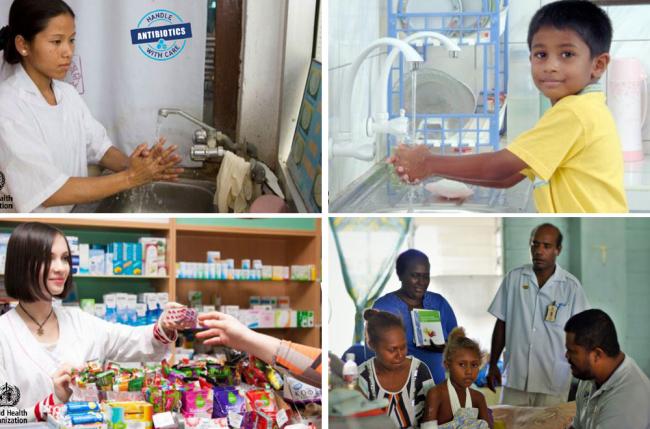
Widespread misunderstanding about antibiotic resistance threatens public health: WHO
The campaign, ‘Antibiotics: Handle with care,’ is a global initiative to improve understanding of the problem and change the way antibiotics are used, to avoid the further emergence and spread of antibiotic resistance, said WHO in a news release.
“The rise of antibiotic resistance is a global health crisis, and governments now recognize it as one of the greatest challenges for public health today. It is reaching dangerously high levels in all parts of the world,” says Dr. Margaret Chan, WHO Director-General at the opening of the World Antibiotics Week, which begins today and runs through 22 November.
Antibiotic resistance is a phenomenon that happens when bacteria change and become resistant to the antibiotics used to treat the infections they cause, WHO said.
The survey points out that over-use and misuse of antibiotics increase the development of resistant bacteria and certain practices, gaps in understanding and misconceptions contribute to this phenomenon.
According to WHO, the multi-country survey included 14 questions on the use of antibiotics, knowledge of antibiotics and of antibiotic resistance, and used a mix of online and face-to-face interviews, which were conducted in 12 countries, namely, Barbados, China, Egypt, India, Indonesia, Mexico, Nigeria, Russian Federation, Serbia, South Africa, Sudan and Viet Nam.
The study found that nearly 60 per cent of 10,000 people who were surveyed across 12 countries acknowledge that antibiotic resistance is an issue that can affect their families, but they are unsure of how it affects them.
Among the surveyed, nearly 64 per cent respondents believe antibiotics can be used to treat colds and flu, despite the fact that antibiotics have no impact on viruses, and an about 32 per cent of people believed they should stop taking antibiotics when they feel better, rather than completing the prescribed course of treatment.
Further, the survey revealed that nearly 76 per cent respondents thought that antibiotic resistance happens when the body becomes resistant to antibiotics, where in fact bacteria, and not humans or animals, become resistant to antibiotics and their spread causes hard-to-treat infections.
Additionally, nearly 66 per cent believed that individuals are not at risk of drug-resistant infection if they personally take their antibiotics as prescribed and nearly half the people surveyed thought that antibiotic resistance is only a problem for people who take antibiotics regularly, whereas in reality anyone, of any age, in any country can get an antibiotic-resistant infection.
The survey also found that more than half the respondents felt there is little to be done to stop antibiotic resistance and about 64 per cent believed medical experts can stop the problem if it becomes too serious and an additional 73 per cent of the respondents said that farmers should give fewer antibiotics to food-producing animals.
At the same time, the survey also found that people did not receive antibiotics prescriptions directly from a medical practitioner. For instance, about five per cent of the respondents in Nigeria got their antibiotics from a hawker or a stall and five per cent of respondents in China got their antibiotics from the internet.
“The findings of this survey point to the urgent need to improve understanding around antibiotic resistance,” says Dr. Keiji Fukuda, Special Representative of the Director-General for Antimicrobial Resistance.
“This campaign is just one of the ways we are working with governments, health authorities and other partners to reduce antibiotic resistance. One of the biggest health challenges of the 21st century will require global behaviour change by individuals and societies,” Fukuda added.
Source: WHO/www.justearthnews.com
Support Our Journalism
We cannot do without you.. your contribution supports unbiased journalism
IBNS is not driven by any ism- not wokeism, not racism, not skewed secularism, not hyper right-wing or left liberal ideals, nor by any hardline religious beliefs or hyper nationalism. We want to serve you good old objective news, as they are. We do not judge or preach. We let people decide for themselves. We only try to present factual and well-sourced news.







